3: Do you see what I see?
Reflections in mirrors are amazing things that tell us a great deal about how we see ourselves.
But what do reflections tell us about the mirrors themselves? And have you ever wondered if I see what you see?
These resources are hand-picked by the TES team
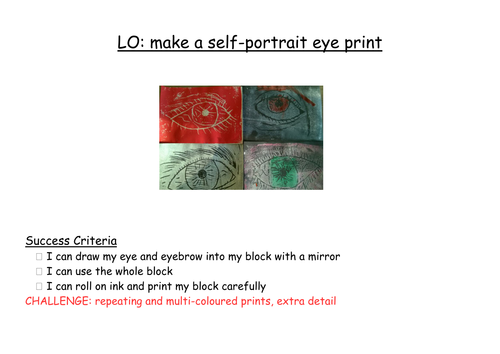
Self-Portrait Eye Printing
Children use a mirror to look at their own eye (or just look at somebody else's). Success Criteria is provided which can be on the whiteboard or printed for tables.
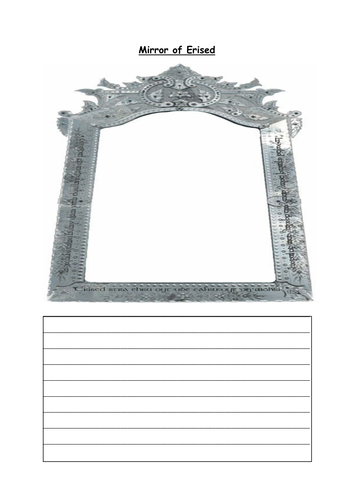
Mirror of erised
Activity where children consider what they would see in the mirror of erised from Harry Potter
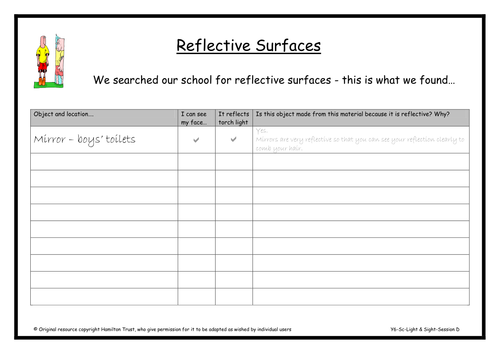
Reflection
Reflection research is in order during this session as children discover that shiny and polished surfaces reflect more light than dull surfaces. Can they use mirrors to bounce torch beams or redirect the laser beam to hit the target?
Suitable for Y6 pupils.
Suitable for Y6 pupils.
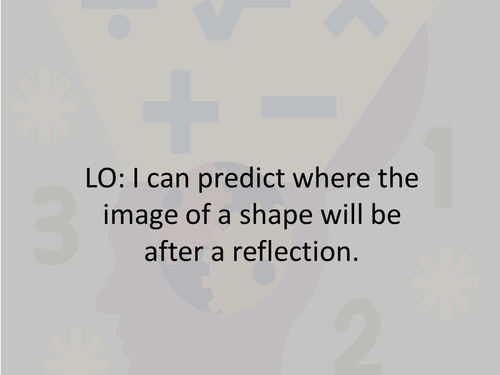
Reflection - Mirror Lines
A collection of resources for a lesson on reflection. Made for Year 6 but adaptable for Year 5.
I don't take credit for the resources. The Powerpoint is the work of Rebecca Riley from another primary website full of resources. I have created the worksheets and the extension activity belongs to Selcuk Basak from the same alternative resources website.
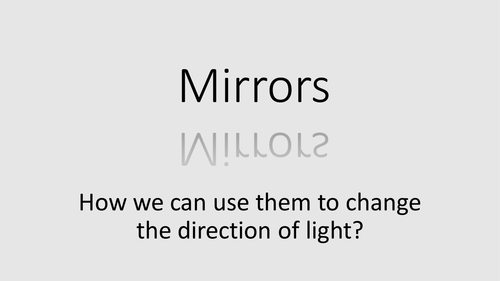
How Mirrors Work
A simple PowerPoint explaining how mirrors work, showcasing an enormous mirror in a Norwegian town that receives no sunlight. Also features a task for children to do on black paper with yellow and white pencils.
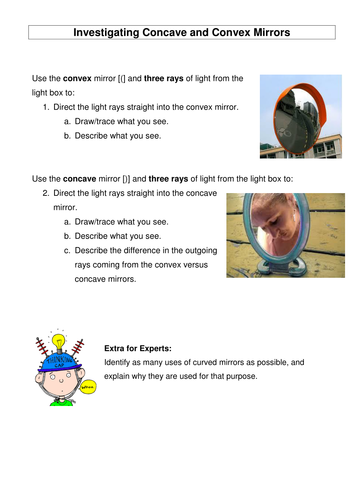
Concave and convex mirrors - a fun investigation
This activity leads students through a practical investigation to find out what concave and convex mirrors do to light rays. It uses a light box and the 3-slit attachment. This is a great way to introduce curved mirrors to students, and have them investigate what they do for themselves. This is suitable for students age 11-14 years old.
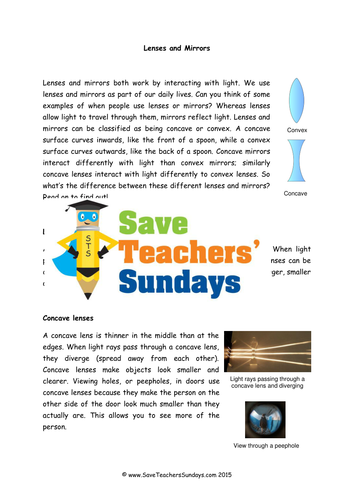
Lenses and Mirrors KS2 Lesson Plan, Information Text and Venn Diagram
Lenses and mirrors KS2 lesson plan information text and venn diagram:
- lenses and mirrors KS2 lesson plan.
- information text for KS2 lenses and mirrors.
- KS2 lenses and mirrors venn diagram.
There is a PDF of all of the files and an editable version of each file (you just need to delete the watermark logo from each of the editable files).
You can find more KS2 Science lesson plans, worksheets and teaching resources on the Save Teachers' Sundays
- lenses and mirrors KS2 lesson plan.
- information text for KS2 lenses and mirrors.
- KS2 lenses and mirrors venn diagram.
There is a PDF of all of the files and an editable version of each file (you just need to delete the watermark logo from each of the editable files).
You can find more KS2 Science lesson plans, worksheets and teaching resources on the Save Teachers' Sundays
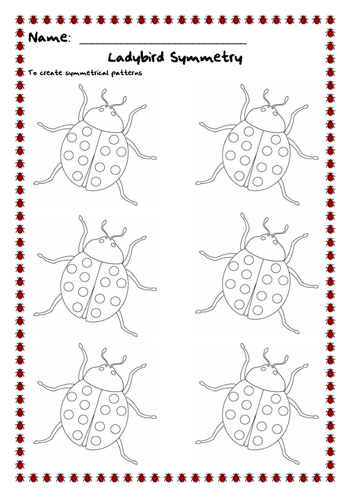
Symmetrical ladybirds
Teachers can colour in one half of the spots on the ladybirds and then allow the children to use mirrors to complete the spotty pattern.
Visit our gallery to see what you've discovered
